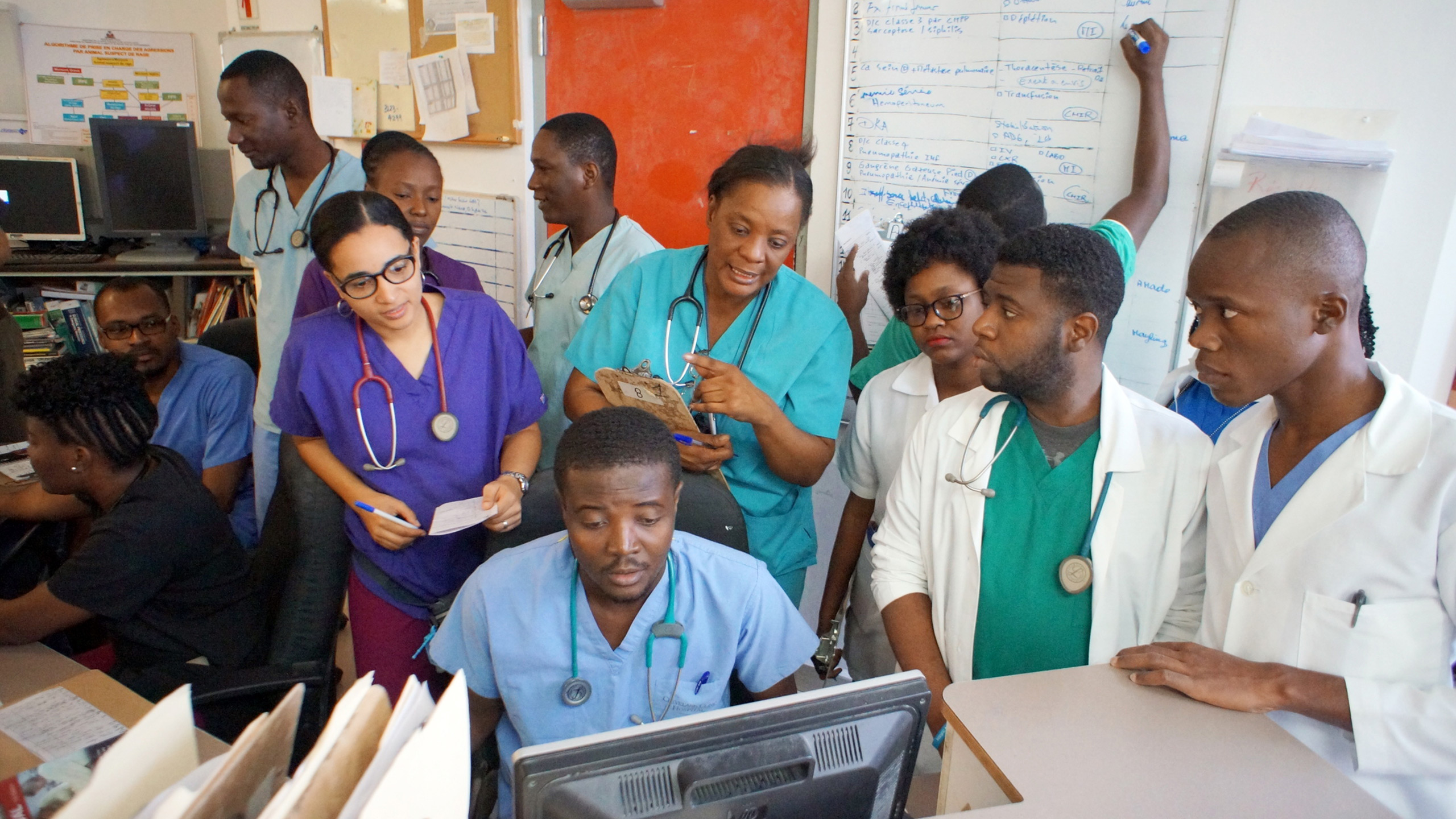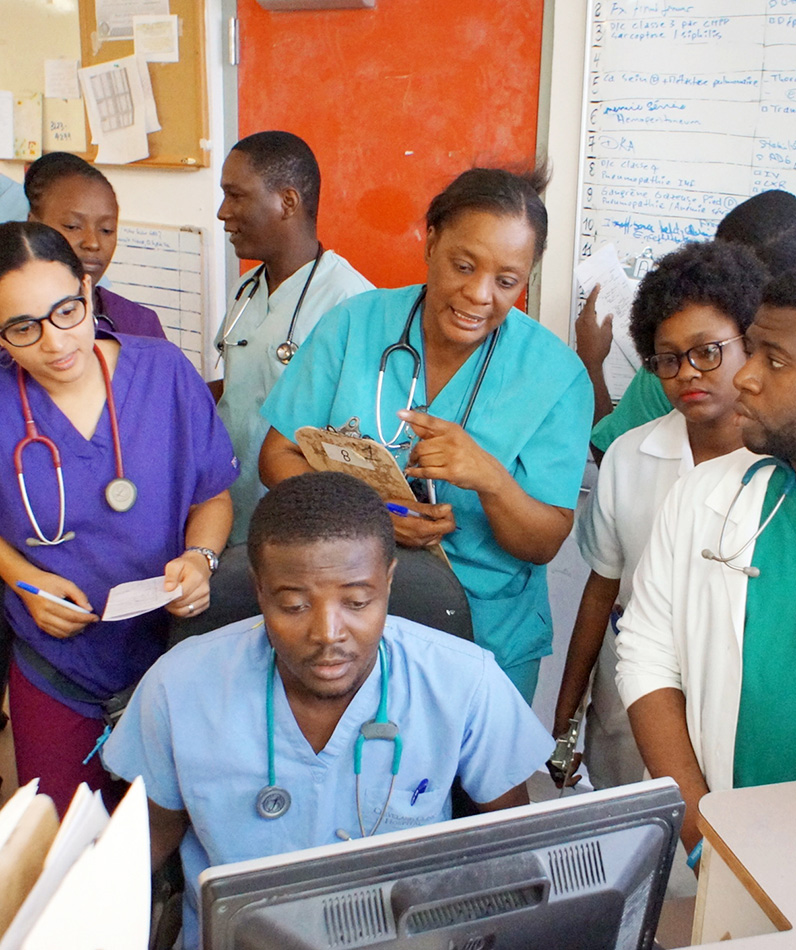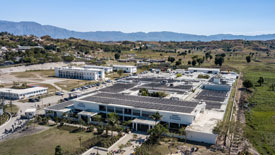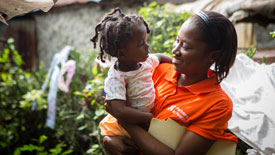Improving Health Care by Investing in Staff
More than 30 years of work in Haiti has taught us that the best way to invest in a system is to invest in its people. The future of Haiti’s health system, and the well-being of its population, depends on the education of new generations of specialized, patient-centered clinicians and health leaders.
Health care in Haiti has long been hamstrung by a chronic shortage of clinicians and other health professionals. Few options for quality, accessible medical education and specialization have left the country with less than 1 health care provider per 1,000 people (compared to the recommended ratio of 4.5).
To address this shortage, Zanmi Lasante–as PIH is known in Haiti–partnered with the State University of Haiti and the Ministry of Health to launch medical residency programs at University Hospital in Mirebalais. University Hospital, founded in the wake of the devastating 2010 earthquake, is a state-of-the-art, 350-bed teaching hospital that has provided close to 2,500,000 patient visits since opening in 2013. For over 10 years, a growing list of residency and fellowship programs have been training doctors and nurses in:
- Pediatrics
- Internal medicine
- Surgery
- Obstetrics and gynecology
- Emergency medicine
- Neurology
- Nurse anesthesiology
- Plastic surgery and burn treatment
- Point of care emergency ultrasound
In 2020, University Hospital became the first facility in a low- or middle-income country to receive accreditation from the Accreditation Council for Graduate Medical Education International (ACGME-I), affirming that it meets the highest global standards as a teaching institution. Importantly, 98% of its residency programs’ graduates have chosen to practice medicine in Haiti, and 88% work at Zanmi Lasante-supported health facilities, serving the most impoverished patients.
Building a University of Global Health Equity in Haiti
Building on three decades of successful health care delivery in Haiti and the University of Global Health Equity in Rwanda, Dr. Paul Farmer and Partners In Health founded the University of Global Health Equity-Haiti (UGHE-H) in 2021. A nonprofit university, UGHE-H will educate and train future generations of Haitians as compassionate health care workers and global health leaders dedicated to a single, high-quality standard of care for all.
The University will also serve as a model for what is possible in global health when resources are concentrated on higher education in settings where too few institutions exist. UGHE-H will fill employment gaps in the Haitian health care system, where less than 1% of Haitian high school graduates have the opportunity to pursue higher education—and provide direct pathways to employment, free of charge to students.
Transforming health care in Haiti through clinical education
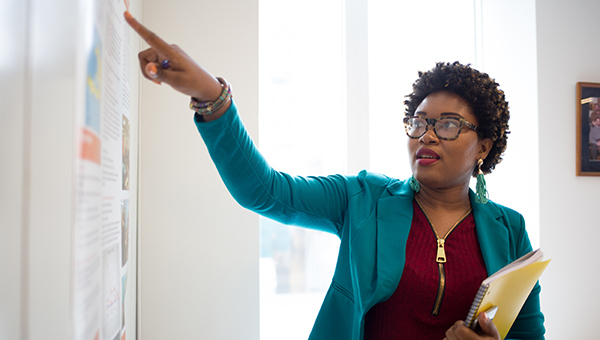
A Year of Educational Training Supplies
Your $10,000 investment could cover the annual cost of supplies for one residency program, such as clinical simulations and access to medical journals.
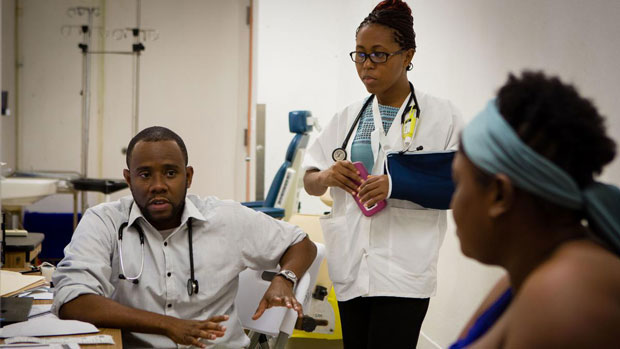
A Year of Residency
Your $35,000 investment could fund one year of residency for an aspiring Haitian emergency physician, pediatrician, internist, OBGYN, or surgeon.
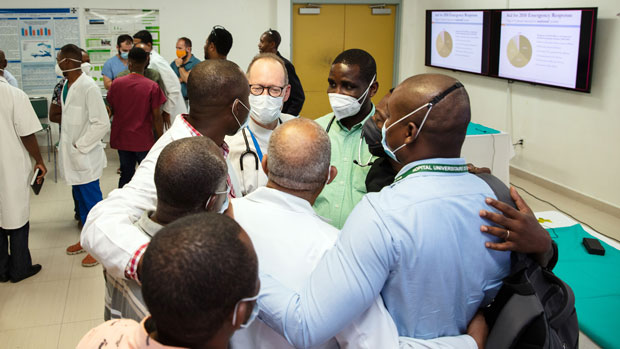
Multi-Year Residency for a Cohort
Your $800,000 investment could fund the entire multi-year residency of a cohort—six residents—of aspiring Haitian emergency physicians, pediatricians, internists, OBGYNs, or surgeons.
Meet Dr. Philippe Dimitri Henrys

When the devastating 7.0-magnitude earthquake struck Haiti in 2010, Philippe Dimitri Henrys, a medical student, rushed to the streets to assist those injured. Witnessing firsthand the devastating consequences of Haiti’s lack of emergency care, when he graduated from medical school he chose to enroll in the new emergency medicine residency program at University Hospital in Mirebalais. As one of 18 graduates from the program, by 2020 Dr. Henrys was an emergency physician working at the Zanmi Lasante-supported hospital in his home city of Hinche, population 50,000.
“Until recently there's been virtually no one trained in providing emergency health care,” Dr. Henrys said. “Now, there are two trained emergency physicians in Hinche. We’re working alongside with general practitioners and nurses to change the landscape of emergency health care in Hinche. The emergency room is working 24/7, and step-by-step, we have started implementing valuable procedures and strategies to reach the desired quality of health care we are providing in the ER.”
